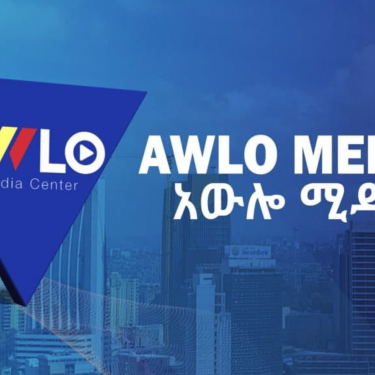RSF decries wave of arrests in Ethiopia

Reporters Without Borders (RSF) condemns the arrests of a total a dozen of journalists in the space of two days in the Ethiopian capital, Addis Ababa, and calls for their immediate and unconditional release.
Most of the arrests took place on 30 June, when a total of 10 employees of the Awlo Media Center news website, including reporters, cameraman and editors, were arrested and placed in detention without being tried. They included Bekalu Alamirew, a journalist who was previously arrested in November 2020 and was held for two weeks on charges of spreading fake news and defamation until granted a conditional release.
Abebe Bayu, a journalist with Ethio-Forum, a YouTube channel critical of the government, was also arrested on 30 June, while his Ethio-Forum colleague, Yayesew Shimeles, was arrested the next day. Neither Awlo Media Center or Ethio-Forum have been functioning since 30 June.
Bayu’s arrest came just nine days he was kidnapped on 21 June by four unidentified men, who threatened him with a gun, gave him a severe beating and took his money and mobile phones before dumping on the outskirts of the capital.
No explanation was given for the 12 arrests until 2 July when Jeylan Abdi, the head of the federal police commission communication bureau, said the journalists had been arrested because of their “affiliation with a terrorist group” that was recently banned by Ethiopia’s parliament.
He was alluding to the Tigray People's Liberation Front (TPLF), against which federal government forces have been fighting since last November in the northern Tigray region, recently withdrawing from Mekelle, the Tigrayan capital.
Both Awlo Media Center and Ethio-Forum had been publishing regular reports contradicting the official government position, especially with regard to the course of the war.
“We condemn these mass arrests of journalists, which clearly aim to deter independent investigative reporting on the war in Tigray,” said Arnaud Froger, the head of RSF’s Africa desk. “These arrests, conducted in a completely opaque manner, are all the more shocking because, just a few months ago, the Ethiopian parliament voted a new media law decriminalising most press offences. We call for the immediate and unconditional release of these journalists.”
Speaking on condition of anonymity, an Addis Ababa-based journalist told RSF that these mass arrests had given rise to a “climate of terror” among journalists in Ethiopia.
The environment for journalists in Ethiopia has worsened steadily in recent months. New York Times correspondent Simon Marks was stripped of his accreditation in March after writing a series of stories about the fighting in Tigray. He was expelled without any warning two months later, on 20 May, in a move without precedent since Abiy Ahmed became prime minister in 2018, when he initially released imprisoned journalists and encouraged more press freedom.
Ethiopia rose steadily in RSF's World Press Freedom Index for three years but fell two places in the 2021 Index and is now ranked 101st out of 180 countries.



